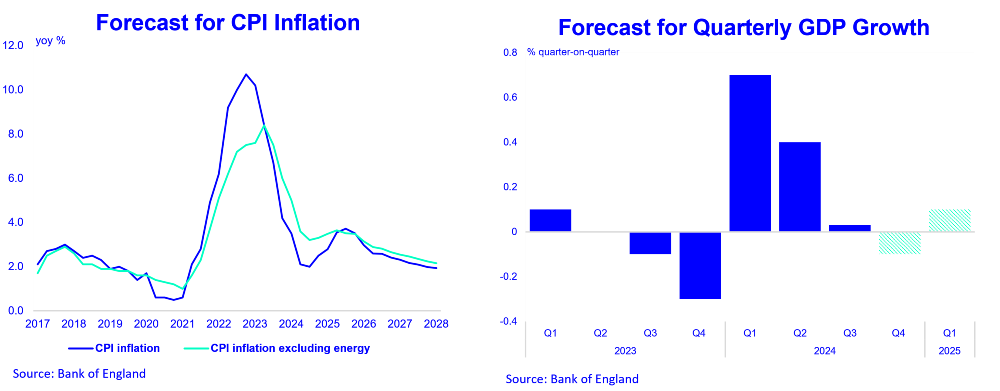The probability of US tariffs being imposed on a broad range of EU exports in the near future has increased, says Bank of Ireland’s Economic Research Unit.
President Donald Trump has implemented 10% tariffs on China, reiterated threats to impose tariffs on the EU and announced 25% tariffs on all US imports of steel and aluminium.
European Commission President Ursula von der Leyen has said the EU will respond with ‘firm and proportionate countermeasures’. In 2023, the United States accounted for €107bn, or 18% of Irish exports, the bulk of which were services €53bn, or pharmaceuticals €40bn.
“Irish exports held-up well during the global financial crisis, through 2008-2009 and again during the Covid-19 pandemic 2020-2021, when global trade suffered sharp declines of 11% and 9% respectively”
Ireland’s export sector normally outperforms more cyclical European countries with heavy manufacturing sectors in periods when global trade is under pressure. This defensive character should again provide some protection for Ireland should tariffs be imposed. Put simply, American consumers will likely bear the cost of any tariffs imposed on pharmaceuticals. However, one risk is that the ICT sector could become the focus of escalating trade tensions.
Ireland’s export sector has performed remarkably well despite challenging global conditions
The current consensus forecast is that euro area industrial production contracted by 2.8% in 2024, hurt by weak global demand and investment and competitiveness issues such as high European energy costs and competition from China in electric vehicle car production. In this context, Ireland’s export sector has outperformed.
Traditional manufacturing output expanded by 4.6% in 2024. In the year to Q3 2024 business services exports grew by 7% to €19bn, computer services by 17% to €66bn. Pharmaceutical exports in the first eleven months were up 18.5%, but even excluding these goods exports rose by 7%.
Defensibility of Irish exports a source of stability
Once again exhibiting it’s defensive nature: Ireland’s defensive export sector has been a source of stability, vis-a-vis other European countries with heavy manufacturing sectors exposed the volatile cycle in global investment spending and demand for capital goods such as machinery and equipment.
The chart below shows that Irish exports held-up well during the global financial crisis, through 2008-2009 and again during the Covid-19 pandemic 2020-2021, when global trade suffered sharp declines of 11% and 9% respectively.
Why? This outperformance reflected the structural rise in ICT sector output, but also the stable demand for pharmaceutical/medical-technology products. These same factors should provide Ireland with some protection should tariffs be imposed on EU-US trade.
The US accounts for circa one-fifth of Irish exports
The US accounted for €107bn, or 18% of Irish exports in 2023, the bulk services €53bn, where tariffs are hard to apply, or pharmaceuticals €40bn, which have a low price elasticity of demand. Put simply, due to the non-discretionary nature of demand for medicines American consumers would likely bear the cost of any tariffs imposed. Indeed, the US government is itself a consumer of Irish pharmaceutical exports via the Medicare and Medicaid insurance programmes. For example, an estimate of the price elasticity of demand for pharmaceuticals is 0.2, implying a 10% tariff if fully passed through to the final consumer price would lead to a small 2% fall in demand for Irish exports to the US. Furthermore, the appreciation of the dollar to $1.04 against the euro will offset the impact of any tariffs, facilitating a price cut in the dollar price of Irish exports.
Risk that ICT sector could become focus of escalating trade tensions
On February 3rd the Financial Times reported the European Commission is considering using an “anti-coercion instrument“ allowing it to target big-tech firms in the event of a US trade dispute. The same report suggested the EU would be reluctant to broaden any trade dispute with the US via measures on technology firms, rather than de-escalate. Nonetheless, there is a risk the ICT sector could become the focus of escalating trade tensions. This focus may emerge over the medium-term, given the US will not adopt the OECD’s Pillar 1 reform (a new taxing right based on the location of sales), with other countries potentially responding by adopting or maintaining digital services taxes.
-
Bank of Ireland is welcoming new customers every day – funding investments, working capital and expansions across multiple sectors. To learn more, click here
-
Listen to the ThinkBusiness Podcast for business insights and inspiration. All episodes are here. You can also listen to the Podcast on:
-
Spotify
-
SoundCloud
-
Apple







